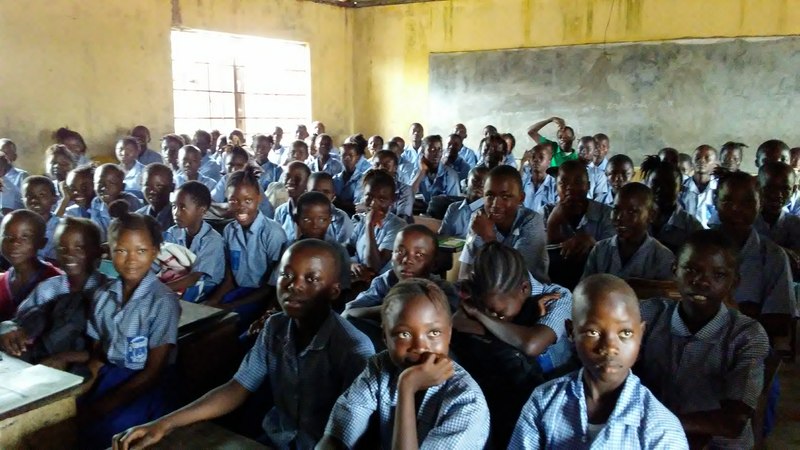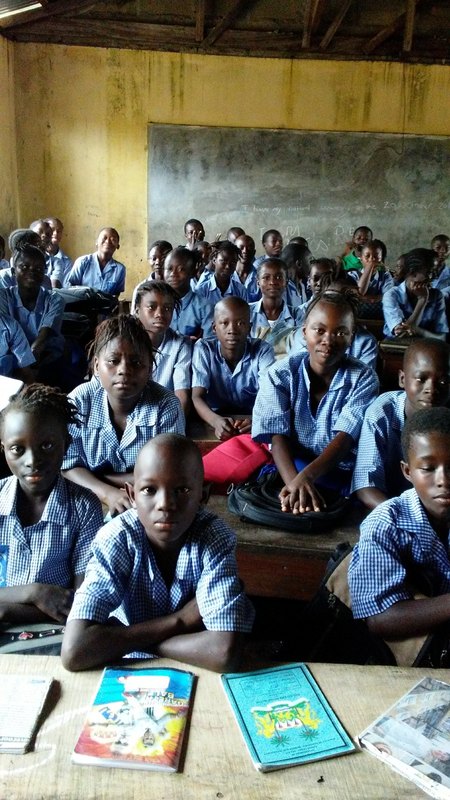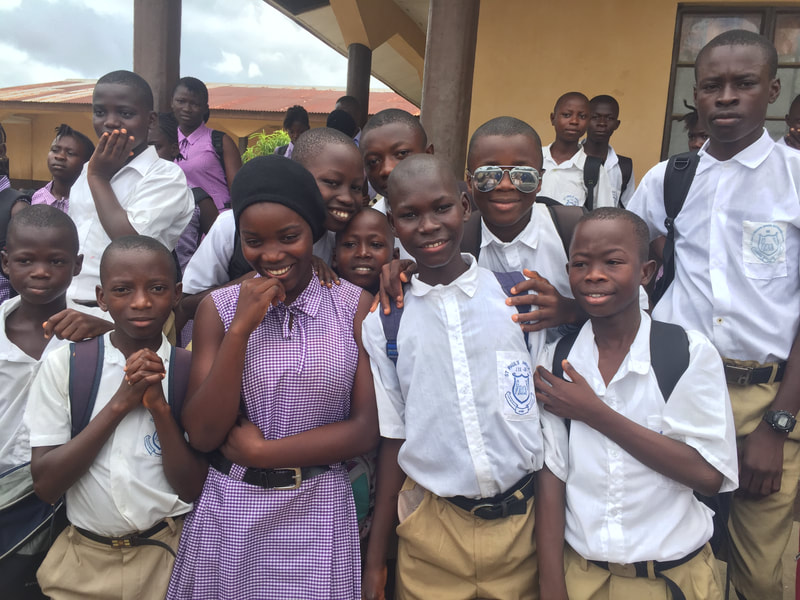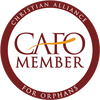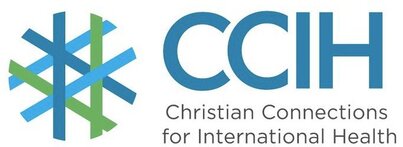|
Written by Dr. Laura Horvath, Helping Children Worldwide Program Development Specialist In August, newly-elected Sierra Leone President Julius Maada Bio announced the launch of the Free Quality Education Programme (FQEP) for 1.6 million primary and secondary children across Sierra Leone, with an increased budget allocation of 21% of the National Budget in August of this year, up from 12.5% in 2016. The first phase of the program went into effect on September 17th, and President Bio has said that the program will take five years to fully implement, though the government has committed to funding this program for at least 10 years. An FQEP Coordinator shared with Sierra Leone News that the government has paid tuition subsidies to over 4,000 schools amounting to 28 million leones. There are three types of schools in Sierra Leone, private, government, and government-supported. All schools in Sierra Leone require that students pay tuition and various school fees. These can include fees for furniture, classroom materials, extra classes, and other supports the school needs to function. Additionally, families must cover the cost of required uniforms, textbooks and all other learning materials. The first phase of the FQEP provides only tuition, a few exercise books (composition notebooks), pens and pencils; and this only applies to schools that are either government or government-assisted schools. Even these schools must apply to receive FQEP benefits, and some schools are still awaiting government approval. Some of the CRC students are enrolled in schools to which the program does not apply, but these students will be transferred to schools that do in the fall of 2019. Kindergarten is not covered by the program, nor are private schools, so the CRC is bearing the tuition costs for these students. Government-supplied exercise books and other necessary learning materials are also in limited supply, so once these supplies run out, the remainder must be provided for by the parents (or in our case, the CRC). The rollout of the plan has not been without its challenges. The promise of tuition-free education has caused enrollment to skyrocket, and many schools have been forced to turn students away for lack of space. Teachers in Sierra Leone sometimes go without a paycheck at all for months at a time; new teachers may not show up on the government rosters for up to two years - and cannot be paid until they do. Although the plan stipulates an increase in teachers and teacher pay, it has not been clear about how or when this will be addressed, or how schools are to manage increased enrollments and higher student/teacher ratios, and according to the Sierra Leone News, teachers report no change in their pay.
“The government is collecting millions of dollars for this program from donors, but we, the teachers don’t see any extra,” one teacher shared with Sierra Leone News. Parents report being asked to pay additional fees to support teachers whose names are not yet on the government payroll (since the government does not pay teachers until they are officially on the payroll, and this can take up to two years). “Some schools are not yet phased in,” says CRC Director, Mohamed Nabieu. “It’s also important to understand that ‘Free Education’ is not universal. There are many villages that don’t even have a school.” The CRC staff reports that the increases in class sizes have led to the addition of new fees as well. Some of the schools attended by CRC students are now asking for “furniture fees,” to help to cover the cost of desks for newly enrolled students. An additional wrinkle has developed that directly impacts UMC schools, even those that are government-supported. “Not all schools apply,” explains Mohamed Nabieu, “and it’s not clear which schools apply and which do not.” For example, according to the United Methodist News, “while the new UMC school in Kabala awaited government approval and funding, all but 12 students transferred to government approved schools so their parents would not have to pay fees for administrative costs.” Bishop Yambasu acted quickly and was able to provide funding to cover these fees for the Kabala school, but it seems that many religious schools, even those that are government-supported, have not yet been approved for the program, and may not be. In related news, on November 28, US Ambassador to Sierra Leone Maria Brewer spoke at the launch of the McGovern-Dole International Food for Education School Lunch Project in Kabala. In partnership with USDA and Catholic Relief Services, this project seeks to aid the government of Sierra Leone in scaling up a national school lunch Program. The project will invest $25 million to expand the provision of daily school meals to nearly 70,000 children, as well as support improved school infrastructure, training and literacy over a period of four years (Sierra Leone has a total of 1,600,000 students currently enrolled in primary and secondary education). The package will include capacity building of teachers, rehabilitation of primary schools, construction of water wells and boreholes. This program is focused on areas in the northern part of the country. While having the government provide free tuition to approved schools is extremely helpful, it doesn’t cover all the education-related costs associated with school. In addition to providing tuition for CRC students in non-approved schools and those enrolled in kindergarten, the CRC continues to provide school uniforms, textbooks, learning materials and all school fees for all of the students in the program. The CRC also provides others kinds of educational support to students in the programs, including tutoring, exam prep classes, life skills and other types of training, computer classes and workshops, career and guidance counseling. Parenting classes and workshops are also provided to parents of students in CRC programs, and extremely vulnerable families are encouraged to enroll in the CRC’s microfinance program for basic economic and budget training and the opportunity to receive a microloan to launch or improve a small business. Case Managers and Counselors provide ongoing support to students as well through home and school visits, and both individual and family counseling opportunities.
0 Comments
Your comment will be posted after it is approved.
Leave a Reply. |
Follow us on social media
Archive
July 2024
Click the button to read heartfelt tributes to a beloved Bishop, co- founder of our mission!
Post
|
Helping Children Worldwide is a 501 (c) 3 nonprofit organization | 703-793-9521 | [email protected]
©2017 - 2021 Helping Children Worldwide
All donations in the United States are tax-deductible in full or part. | Donor and Privacy Policy
©2017 - 2021 Helping Children Worldwide
All donations in the United States are tax-deductible in full or part. | Donor and Privacy Policy

